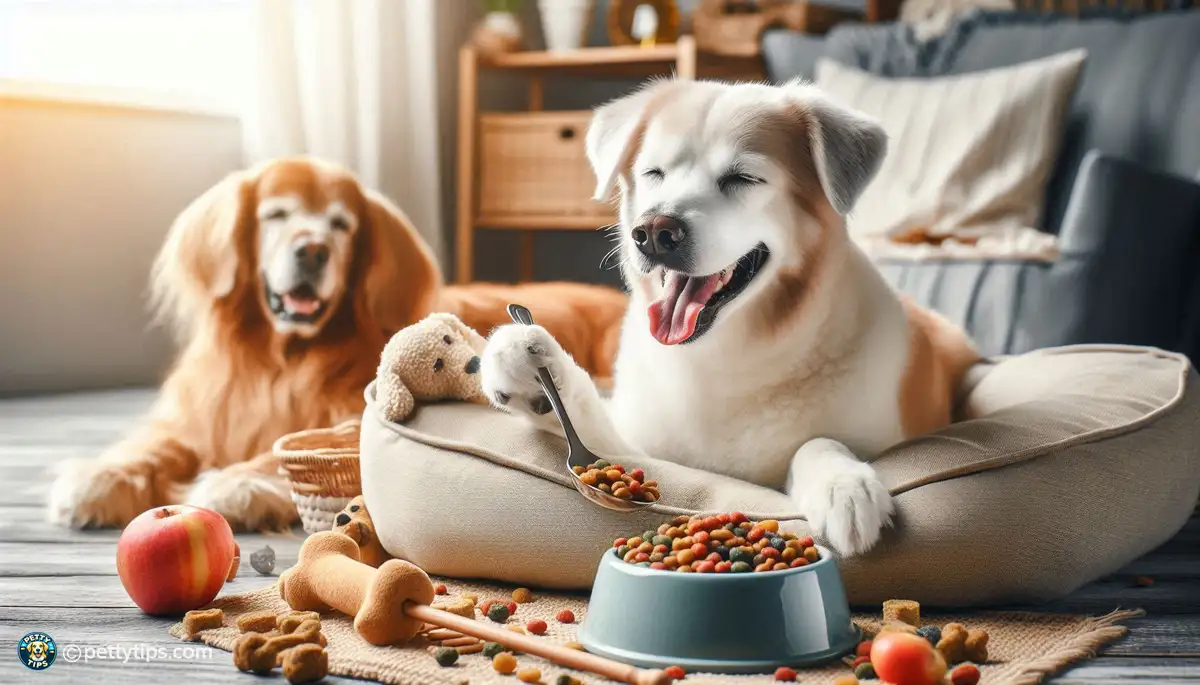
Incorporating Weight Loss Supplements into Your Pets Diet
Rebecca Jorgenson - Sep 27, 2024 - 6 min read


As our furry friends age, their nutritional needs change. It's crucial to understand the signs of aging in pets so you can provide them with the right diet to support their health and vitality. Look out for changes in energy levels, appetite, mobility, and weight. These can indicate that it's time to transition to a senior pet food.
senior pets have different nutritional requirements compared to their younger counterparts. Their metabolism slows down, and they may develop specific health issues such as joint problems or dental issues. Therefore, it's essential to choose a senior pet food formula that is tailored to meet their unique needs. Look for formulas that contain ingredients like glucosamine and chondroitin for joint health and antioxidants for immune support.
Transitioning to a new pet food should be done gradually to avoid upsetting your pet's stomach. Start by mixing a small amount of the new food with their current food and gradually increase the proportion over the course of a week or two. This slow transition allows your pet's digestive system to adjust to the new food without causing any gastrointestinal upset.
During the transition period, it's essential to monitor your pet for any changes in their health or behavior. Keep an eye on their appetite, energy levels, and stool consistency. If you notice any significant changes or concerns, consult your veterinarian for guidance. They can provide valuable advice and recommendations to ensure a smooth transition to a senior pet food.
When selecting a senior pet food, it's important to prioritize quality ingredients. Look for formulas that contain real meat as the primary ingredient, as well as whole grains, fruits, and vegetables. Avoid foods that contain artificial additives, preservatives, and fillers, as these can be detrimental to your pet's health in the long run.
Senior pets may have specific health issues that need to be addressed through their diet. For example, if your pet has joint problems, look for a formula that contains ingredients like glucosamine and chondroitin to support joint health. Similarly, if your pet has dental issues, opt for a formula that promotes dental health, such as kibble with a crunchy texture to help reduce plaque and tartar buildup.
As pets age, their metabolism slows down, and they may have difficulty digesting large meals. To make mealtime more manageable for your senior pet, consider feeding them smaller, more frequent meals throughout the day. This can help prevent digestive issues and keep them feeling satisfied and energized.
Senior pets are more prone to dehydration, so it's essential to ensure they have access to fresh, clean water at all times. You can also supplement their diet with wet food or add water to their dry kibble to increase their water intake. proper hydration is crucial for maintaining overall health and preventing urinary tract issues in senior pets.
Some senior pets may be pickier eaters, making the transition to a new food more challenging. If your pet refuses to eat the new food, try mixing in some of their favorite treats or canned food to entice them. You can also try warming up the food slightly to enhance its aroma and make it more appealing to your pet.
Transitioning to a new pet food can sometimes cause digestive upset, such as diarrhea or vomiting, especially if it's done too quickly. If your pet experiences any gastrointestinal issues during the transition period, slow down the process and give their digestive system time to adjust. You can also consult your veterinarian for advice on how to manage any digestive issues effectively.
Transitioning to a senior pet food is an important milestone in your furry friend's life. By understanding their changing nutritional needs, making the transition gradually, and choosing the right food tailored to their specific health needs, you can help ensure they enjoy a happy, healthy, and fulfilling senior years. Remember to monitor your pet's health and behavior closely during the transition period and consult your veterinarian if you have any concerns or questions. With proper care and nutrition, your senior pet can continue to thrive and enjoy life to the fullest.